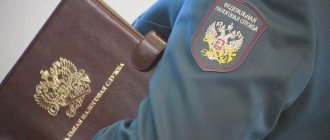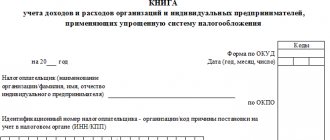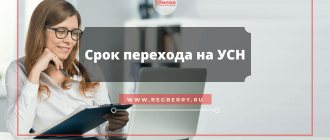The general (standard) taxation system is the most complex taxation regime of all existing in Russia, characterized by a large number of taxes and the obligation to maintain full accounting and tax records.
By default, all entrepreneurs and organizations that have not decided on the choice of taxation system upon registration, as well as those that are no longer entitled to apply any of the special tax regimes: simplified tax system, PSN and unified agricultural tax, are transferred to OSNO by default.
The general system is not subject to any restrictions on types of activities, number of employees, income received, etc. As a rule, most large companies work on OSNO and, as VAT payers, also prefer to work with those who pay this tax.
Free tax consultation
OSN: definition of the concept
The general taxation system is an unofficial concept, despite its widespread use.
The Tax Code of the Russian Federation does not contain a direct correspondence for it. Moreover, in the main Russian tax law source there is no official interpretation of the term “general taxation system”. Therefore, for an individual entrepreneur, before thinking about the advantages and disadvantages of the special tax system, it will be useful to understand what is meant by the corresponding taxation system.
In accordance with the generally accepted definition, an individual entrepreneur is recognized as carrying out activities under the special tax regime if he does not apply any of the following special tax regimes:
- simplified tax system;
- Unified Agricultural Sciences;
- PSN.
A special case is the use by an entrepreneur of UTII. This special tax regime can be applied simultaneously with the SST, but for different types of activities (if, of course, among them there are those that are compatible with UTII in accordance with clause 2 of Article 346.26 of the Tax Code of the Russian Federation).
From 2022, UTII has been abolished throughout Russia. Find out what an entrepreneur should do if he combines UTII and OSNO in the Typical Situation from ConsultantPlus. If you do not have access to the K+ system, get a trial online access for free.
The application of the OSN presupposes the mandatory payment by individual entrepreneurs of the following basic taxes:
- VAT;
- personal income tax;
- property tax.
The main criterion for choosing one tax regime or another, both for individual entrepreneurs and legal entities, is the expected tax burden. What can it be like in AHF?
Taxes that must be paid on OSNO
- Corporate income tax 20%. Advance payments for organizations are made within 28 days from the end of the reporting period.
- Personal income tax 13%, 30%. Paid by an individual entrepreneur until July 15 of the year following the reporting year.
- VAT 0%, 10%, 20%. Paid by organizations and individual entrepreneurs no later than the 25th day of each month following the expired tax period, 1/3 of the amount each month or in a single amount until the 25th day of the month following the previous quarter.
- The corporate property tax is no more than 2.2%. Tax and advance payments are paid according to the deadlines established by the regulations of the constituent entities of the Russian Federation.
- Property tax for individuals is paid in the amount of 0.1% to 2%. Tax for the year is due by December 1 of the year following the reporting year.
OSN for individual entrepreneurs: tax burden for VAT
So, the first tax that an individual entrepreneur pays on the OSN is VAT. It must be transferred by the entrepreneur to the federal budget at the rates determined by Art. 164 of the Tax Code of the Russian Federation from each transaction reflecting payment by the counterparty for the delivered goods or services.
Find out about the current VAT rates in 2020-2021 here.
VAT, which must be paid to the budget by the individual entrepreneur on his own behalf, is called outgoing, since it is accrued on goods and services supplied by the individual entrepreneur to other persons.
There is also input VAT, which can be included in the cost of goods and services purchased by individual entrepreneurs or can be deducted. This VAT is paid on its own behalf not by the individual entrepreneur, but by his supplier, but only if he is also a legal VAT payer and can confirm this by issuing an invoice.
Russian tax legislation allows individual entrepreneurs to apply deductions for amounts paid as input VAT (if its supplier is itself a VAT payer and issues an invoice).
Example:
Jupiter LLC, which assembles televisions, purchased components for TV assembly from IP Stepanov A.V. in the amount of 120,000 rubles. including VAT 20%, which will be included in Jupiter LLC. Subsequently, the company, having assembled the televisions, sold them for the amount of 360,000 rubles, also taking into account VAT of 20%, which will be outgoing for Jupiter LLC and incoming for buyers of televisions.
As a result, Jupiter LLC received the right to accept input VAT amounting to 20,000 rubles for deduction in the presence of output VAT amounting to 60,000 rubles.
The procedure for recognizing individual entrepreneur's expenses on OSNO
To account for the expenses of an individual entrepreneur on OSNO as part of tax deductions, these expenses must relate directly to the conduct of business, be fully paid and confirmed by relevant documents (invoices, acts, invoices, etc.).
With the cash method of accounting, there is a relationship between the time expenses are recognized and the receipt of revenue associated with those expenses. The Russian Ministry of Finance believes that an entrepreneur using OSNO has the right to take into account the cost of purchased goods in expenses only after receiving payment from the buyer for this product. That is, the goods must be sold and paid for by the buyer.
Individual entrepreneur on OSN: tax burden for personal income tax
In this case, personal income tax is paid from any funds received as part of business activities to the cash desk or to the account of the individual entrepreneur. The personal income tax rate for individual entrepreneurs is 13%, as for other individuals.
Unlike VAT, the tax in question is neither incoming nor outgoing. At the same time, when calculating personal income tax, an entrepreneur can use a professional tax deduction and thereby reduce the tax base by the amount of actual business-related expenses (clause 1 of Article 221 of the Tax Code of the Russian Federation).
How significant is the tax burden on individual entrepreneurs paying personal income tax when compared with what characterizes other taxation systems? Let's consider this aspect using the example of a comparison of the special tax system, under which personal income tax is paid, and the simplified tax system.
Example:
Individual entrepreneur A.V. Stepanov, producing components for televisions at his factory, sells them for the amount of 1,000,000 rubles. per year, with production costs of 800,000 rubles. in year. That is, his profit is 200,000 rubles. in year.
If he works under the simplified tax system “income minus expenses”, then he must pay a tax in the amount of 30,000 rubles (15% of 200,000 rubles).
If he works, paying personal income tax taking into account professional deductions, he will already owe the state 26,000 rubles. (13% of RUB 200,000).
If an entrepreneur wishes to work under the simplified tax system “income”, he will pay a tax in the amount of 60,000 rubles. (6% of RUB 1,000,000).
In addition, a regime such as the simplified tax system “income” has a major advantage over the special tax system - it allows individual entrepreneurs to reduce the tax by the amount of mandatory contributions to state funds - the Pension Fund of the Russian Federation, the Social Insurance Fund and the Federal Compulsory Medical Insurance Fund - for themselves and for their employees.
VAT exemption
Did you know that you can avoid paying VAT at all? Yes, Article 145 of the Tax Code of the Russian Federation states that individual entrepreneurs may be exempt from paying this tax. You can use this right if for the three previous tax periods the amount of revenue of the enterprise was less than two million rubles. But do not count on such a privilege if you are selling excisable products. Alcohol, tobacco, fuel, some categories of cars - trade in all of this deprives the prospect of being exempt from tax.
Individual entrepreneurs may be exempt from paying this tax.
To obtain an official exemption from VAT, contact the tax office at your place of registration with a completed notice, an extract from the income-expenses book and a copy of the invoice registration book. Have time to submit your papers before the 20th of the month from which you plan to “become released.”
You must confirm your right not to pay VAT once a year. If the situation has changed and revenue has increased, you should notify the tax office yourself, otherwise the punishment will be fines and penalties. This also applies to cases where during the reporting period you sold excisable products.
General taxation of individual entrepreneurs in 2022 - 2022: features
An individual entrepreneur working for OSN and using property in his activities is considered as a payer of property tax in the status of an individual. Moreover, in 2022-2022 the tax is calculated based on the cadastral value if:
- The individual entrepreneur uses property for commercial purposes (clause 3 of Article 402 of the Tax Code of the Russian Federation, subclause 1, 2 of clause 1 of Article 378.2 of the Tax Code of the Russian Federation);
- in the region in which the individual entrepreneur operates, a legal regulation has been adopted, where the rates for commercial property tax are fixed (clause 2 of article 378.2 of the Tax Code of the Russian Federation).
If both criteria are met, the individual entrepreneur pays property tax based on its cadastral value (clause 1 of Article 378.2 of the Tax Code of the Russian Federation) based on a notification from the Federal Tax Service (clause 2 of Article 409 of the Tax Code of the Russian Federation).
See also “Step-by-step instructions for calculating property tax from the cadastral value.”
What other taxes and contributions do the individual entrepreneur pay on OSNO, see the Typical situation from ConsultantPlus. And after studying this material, you will learn what kind of reporting to submit to an entrepreneur under the general taxation system. Full trial access to K+ is available for free.
Legal basis
The procedure for calculating and paying personal income tax by individual entrepreneurs (hereinafter referred to as individual entrepreneurs) is regulated by the provisions of Chapter 23 of the Tax Code of the Russian Federation.
In accordance with paragraph 1 of Art. 210 of the Tax Code of the Russian Federation, when determining the tax base, all income of the taxpayer received by him, both in cash and in kind, or the right to dispose of which he has acquired, as well as income in the form of material benefits, determined in accordance with Art. 212 of the Tax Code of the Russian Federation, and if any deductions are made from the taxpayer’s income by order, by decision of a court or other authorities, such deductions do not reduce the tax base.
According to paragraph 2 of Art. 54 of the Tax Code of the Russian Federation, individual entrepreneurs calculate the tax base at the end of each tax period on the basis of accounting data for income and expenses and business transactions in the manner determined by the Ministry of Finance of Russia.
This procedure was established by order of the Ministry of Finance of Russia N 86n, Ministry of Taxes of the Russian Federation dated August 13, 2002 N BG-3-04/430 “On approval of the Procedure for accounting for income and expenses and business transactions for individual entrepreneurs” (hereinafter referred to as the Accounting Procedure).
Paragraph 2 of clause 2 of the Accounting Procedure determines that accounting data for income and expenses and business transactions are used to calculate the tax base for personal income tax (hereinafter referred to as personal income tax) paid by individual entrepreneurs on the basis of Chapter 23 of the Tax Code of the Russian Federation.
In accordance with the previously valid clause 13 of the Accounting Procedure, income and expenses had to be reflected in the Accounting Book on a cash basis, that is, after the actual receipt of income and the expenditure. This paragraph of the Accounting Procedure by decision of the Supreme Arbitration Court of the Russian Federation dated October 8, 2010 N VAS-9939/10 was declared invalid.
In its decision, the Supreme Arbitration Court indicated that the provisions of the Tax Code of the Russian Federation enshrine the right of entrepreneurs to reduce taxable income by the amount of actually incurred and documented expenses associated with its receipt. The composition of costs is determined in a manner similar to that established for calculating income tax. The above norm refers to the provisions of Chapter 25 “Income Tax” of the Tax Code of the Russian Federation. This chapter, establishing the procedure for recognizing income and expenses, establishes two methods - accrual and cash. Moreover, the choice of any of them is the right of the organization, subject to its compliance with certain requirements. Thus, the establishment in clause 13 of the Accounting Procedure of the provision on the mandatory use of individual entrepreneurs exclusively by the cash method of accounting for income and expenses does not correspond to clause 1 of Art. 273 Tax Code of the Russian Federation.
Clause 14 of the Accounting Procedure states that the Accounting Book (Section I of the Accounting Book) reflects all income received by individual entrepreneurs from business activities without reducing them by the tax deductions provided for by the tax legislation of the Russian Federation.
Income includes all receipts from the sale of goods, performance of work and provision of services, as well as the value of property received free of charge.
The cost of goods sold, work performed and services rendered is reflected taking into account the actual costs of their acquisition, implementation, provision and sale.
Amounts received as a result of the sale of property used in the process of carrying out business activities are included in the income of the tax period in which this income was actually received.
Income from the sale of fixed assets and intangible assets is determined as the difference between the sales price and their residual value.
Thus, in the current version of the Accounting Procedure, the definition of income using the cash method is established only for income from the sale of property.
At the same time, in accordance with paragraph 1 of Art. 223 of the Tax Code of the Russian Federation, the date of actual receipt of income is the day:
1) payment of income, including transfer of income to the taxpayer’s bank accounts or, on his behalf, to the accounts of third parties - when receiving income in cash;
2) transfer of income in kind - when receiving income in kind;
3) acquisition of goods (work, services), acquisition of securities - upon receipt of income in the form of material benefits. If payment for acquired securities is made after the transfer of ownership of these securities to the taxpayer, the date of actual receipt of income is determined as the day the corresponding payment is made to pay for the cost of the acquired securities;
4) offset of counter similar claims;
5) writing off bad debt from the organization’s balance sheet in accordance with the established procedure;
6) the last day of the month in which the advance report is approved after the employee returns from a business trip;
7) the last day of each month during the period for which borrowed (credit) funds were provided, upon receipt of income in the form of material benefits obtained from savings on interest when receiving borrowed (credit) funds.
Types of individual entrepreneur reporting on OSN
Entrepreneurs operating under the OSN are required to submit the following types of reporting documents to the Federal Tax Service:
- VAT returns (quarterly);
- declarations in form 3-NDFL (annually);
- reports on other taxes if there is an object of taxation (within the time limits established by legal regulations).
Individual entrepreneurs and employees, in addition to the specified documents, hand over:
- information on the average number of staff (from the 2020 report submitted as part of the ERSV);
- personal income tax reporting for employees;
- reporting to funds.
Results
The general taxation system for individual entrepreneurs is often considered not the most profitable due to the relatively high tax burden and the need to prepare numerous reports. However, the work of an individual entrepreneur on OSN can have undeniable advantages.
The fact is that many VAT payers try to interact only with those suppliers who also pay VAT in order to be able to receive tax deductions.
You can get acquainted with other remarkable facts about OSN in the articles:
- “How can an organization choose a tax regime: OSN, simplified tax system or UTII?”;
- “Can an entrepreneur who has switched to OSN reduce the income from the sale of real estate acquired by him on a simplified basis?”
You can find more complete information on the topic in ConsultantPlus. Free trial access to the system for 2 days.
Documents confirming expenses
Documents must be in a unified form or developed and approved by the entrepreneur. They are filled out in accordance with legal requirements.
The most frequently encountered documents are:
- consignment note TORG-12;
- waybill;
- act of completed work or services;
- invoice (if the supplier is a VAT payer).
When paying in cash for stationery, household goods, etc.:
- sales receipt (if the company is on UTII);
- sales receipt + cash register receipt (if the company is on the simplified tax system or OSNO).





